Related Research Articles

Margaret Eleanor Atwood is a Canadian poet, novelist, literary critic, essayist, teacher, environmental activist, and inventor. Since 1961, she has published eighteen books of poetry, eighteen novels, eleven books of non-fiction, nine collections of short fiction, eight children's books, two graphic novels, and a number of small press editions of both poetry and fiction. Atwood has won numerous awards and honors for her writing, including two Booker Prizes, the Arthur C. Clarke Award, the Governor General's Award, the Franz Kafka Prize, Princess of Asturias Awards, and the National Book Critics and PEN Center USA Lifetime Achievement Awards. A number of her works have been adapted for film and television.
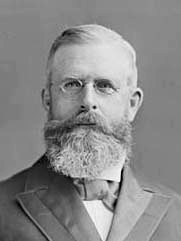
Sir William Mulock was a Canadian lawyer, businessman, educator, farmer, politician, judge, and philanthropist. He served as vice-chancellor of the University of Toronto from 1881 to 1900, negotiating the federation of denominational colleges and professional schools into a modern university.

Abortion in Canada is legal at all stages of pregnancy and is publicly funded as a medical procedure under the combined effects of the federal Canada Health Act and provincial health-care systems. However, access to services and resources varies by region. While some non-legal barriers to access continue to exist, Canada is one of the only nations with absolutely no criminal restrictions on abortion. Abortion availability is, however, subject to provincial health-care regulatory guidelines for physicians. The general rule is that few providers offer abortion care beyond 23 weeks and 6 days, but there can be exceptions in certain cases.
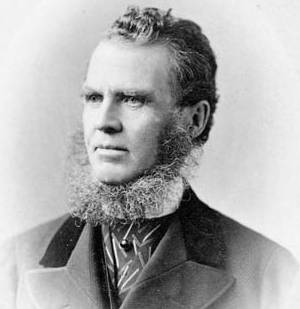
Sir William Pearce Howland, served as the second Lieutenant Governor of Ontario, from 1868 to 1873. He was one of the Fathers of Confederation.

Egan v Canada, [1995] 2 SCR 513 was one of a trilogy of equality rights cases published by a very divided Supreme Court of Canada in the spring of 1995. It stands today as a landmark Supreme Court case which established that sexual orientation constitutes a prohibited basis of discrimination under section 15 of the Canadian Charter of Rights and Freedoms.
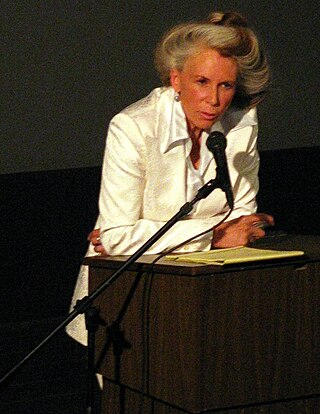
Catharine Alice MacKinnon is an American radical feminist legal scholar, activist, and author. She is the Elizabeth A. Long Professor of Law at the University of Michigan Law School, where she has been tenured since 1990, and the James Barr Ames Visiting Professor of Law at Harvard Law School. From 2008 to 2012, she was the special gender adviser to the Prosecutor of the International Criminal Court.
Claire L'Heureux-Dubé is a retired Canadian judge who served as a puisne justice on the Supreme Court of Canada from 1987 to 2002. She was the first woman from Quebec and the second woman appointed to this position, after Bertha Wilson. Previously, she had been one of the first woman lawyers to handle divorce cases, and was the first woman appointed as a judge to the Quebec Superior Court and the Quebec Court of Appeal.
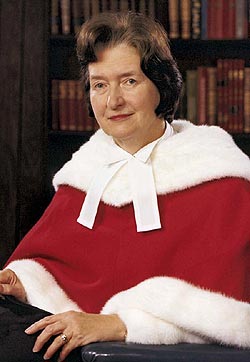
Bertha Wernham Wilson was a Canadian jurist and the first female puisne justice of the Supreme Court of Canada. Before her ascension to Canada's highest court, she was the first female associate and partner at Osler, Hoskin & Harcourt and the first woman appointed to the Court of Appeal for Ontario. During her time at Osler, she created the first in-firm research department in the Canadian legal industry.
John Wesley "Buzz" McClung was a historian, lawyer, jurist, and a judge of the Alberta Court of Appeal.

Clara Brett Martin was a Canadian lawyer. She opened the way for women to become lawyers in Canada by being the first in the British Empire in 1897.
Gerald Eric Le Dain, was a Canadian lawyer and judge, who sat on the Supreme Court of Canada from 1984 to 1988.

Marguerite Andersen was a German-born Canadian francophone writer and educator writer, who was based in Toronto, Ontario, where she was a teacher at the Toronto Linden School.
Louis-Mathias Auger was an Ontario teacher and political figure. He represented Prescott in the House of Commons of Canada as a Liberal member from 1926 to 1929.
Blake, Cassels & Graydon LLP (Blakes) is an international corporate law firm with offices in Montreal, Ottawa, Toronto, Calgary, Vancouver, New York City, and London.
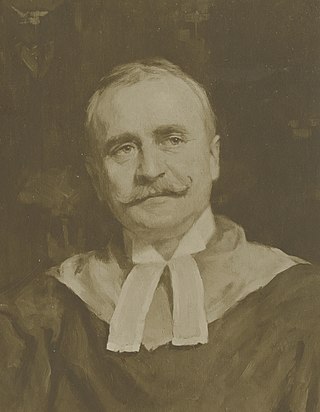
William Renwick Riddell was a Canadian lawyer, judge, and historian.
Masculism or masculinism may variously refer to ideologies and socio-political movements that seek to eliminate sexism against men, equalize their rights with women, and increase adherence to or promotion of attributes regarded as typical of men and boys. The terms may also refer to the men's rights movement or men's movement, as well as a type of antifeminism.

Florence Amelia Deeks (1864–1959) was a Canadian teacher and writer. She is known for accusing British author H. G. Wells of having plagiarized her work when he wrote The Outline of History. The case was eventually taken to the Judicial Committee of the British Privy Council, the highest court in the British Empire, which rejected her claim.
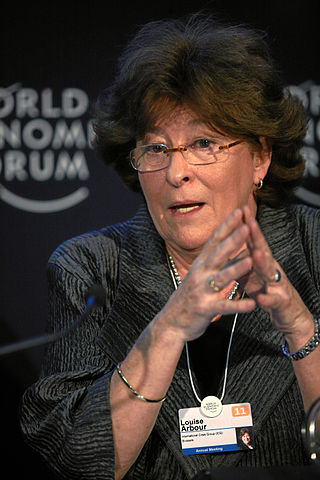
Women in law describes the role played by women in the legal profession and related occupations, which includes lawyers, paralegals, prosecutors, judges, legal scholars, law professors and law school deans.

Annie MacDonald Langstaff was a Canadian law student, legal activist, supporter of women's suffrage and an early woman aviator. Born in Ontario in 1887, she graduated from Prescott High School and then married in 1904. Her husband quickly abandoned her, leaving her a single mother. Moving to Montreal in 1906, she began working as a stenographer in the law office of Samuel William Jacobs, who encouraged her to study law. Finding no barriers to her admission, Langstaff enrolled at McGill University in 1911, graduating three years later as a Bachelor of Civil Law. On applying to the Bar of Montreal to practice, she was refused the right to take the examination.
Réjane Laberge-Colas was a judge of the Quebec Superior Court, sitting in Montreal, and the first woman to serve as a superior court judge in Canada. She was a founder and the first president of the Fédération des femmes du Québec (FFQ). Laberge-Colas was inducted to the Order of Canada in 1997.
References
- ↑ "Biography". University of Ottawa. Archived from the original on 2011-09-21. Retrieved October 9, 2011.
- ↑ "Women, Work and the Academy". Barnard University. Retrieved October 9, 2011.
- ↑ "Dr Constance Backhouse". The Governor General of Canada. Retrieved December 6, 2020.
- ↑ "Biography". University of Ottawa. Archived from the original on 2011-09-21. Retrieved October 9, 2011.
- ↑ "Biography". University of Ottawa. Archived from the original on 2011-09-21. Retrieved October 9, 2011.
- ↑ Claridge, Thomas. "Ontario's law society approves national standard for law schools". Lawyer's Weekly. Archived from the original on 2012-04-02. Retrieved October 6, 2011.
- ↑ "Governor General's Awards in Commemoration of the Persons Case: 2013 Recipients". Status of Women Canada. 27 Apr 2015. Retrieved 11 Feb 2016.